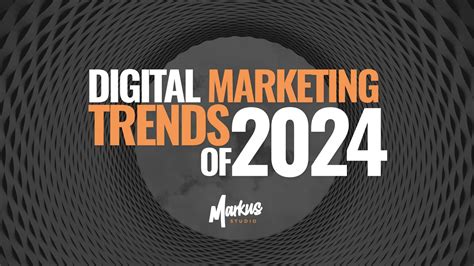Discover the future of video marketing on social media in 2024. Explore the evolution of platforms, technological advances, changing consumer behavior, AR integration, and AI impact.In the ever-evolving landscape of social media, video marketing has become an essential tool for businesses to reach and engage with their audience. As we look towards the future of video marketing on social media in 2024, it’s important to consider the changes and advancements that will shape the industry. From the evolution of social media platforms to technological advances in video marketing, and the integration of augmented reality and AI, the possibilities for reaching and influencing consumers are constantly expanding.
This blog post will take an in-depth look at the future of video marketing on social media, exploring the ways in which social media platforms have evolved, the technological advances that are shaping video marketing strategies, and how changing consumer behavior and preferences are influencing the way businesses create and share video content. We will also delve into the potential impact of augmented reality and the integration of AI and machine learning on the future of video marketing. Join us as we explore the exciting possibilities that lie ahead for video marketing on social media in 2024.
Evolution of Social Media Platforms
Social media platforms have come a long way since the early days of MySpace and Friendster. These platforms have evolved into powerful tools that are used by billions of people around the world to connect, share, and communicate. The evolution of social media platforms has been driven by advancements in technology, changes in user behavior, and the demands of a constantly evolving digital landscape.
The early social media platforms were primarily used for connecting with friends and family, sharing personal updates, and communicating with others. Today, social media platforms have become sophisticated ecosystems that offer a wide range of features and functionalities, including video sharing, live streaming, e-commerce, and targeted advertising. The evolution of social media platforms has transformed the way we communicate, consume content, and interact with brands and businesses.
With the rise of mobile technology, social media platforms have also adapted to meet the needs of users on the go. Mobile apps and responsive design have become standard features on social media platforms, making it easier for users to access their favorite platforms from any device. The evolution of social media platforms has also led to the democratization of content creation, allowing individuals and businesses to easily create and share their own videos, photos, and posts with a global audience.
In the future, we can expect social media platforms to continue to evolve and adapt to meet the changing needs and preferences of users. Advancements in technology such as virtual reality, augmented reality, and artificial intelligence are likely to play a significant role in shaping the future of social media platforms. As video content continues to dominate the social media landscape, we can expect to see more interactive and immersive video experiences that provide users with new ways to engage with each other and with brands.
Technological Advances in Video Marketing
In the fast-paced world of technology, video marketing is advancing at a rapid pace. With the introduction of AI and machine learning into the marketing realm, video content is becoming more personalized and targeted, leading to higher engagement and conversion rates for businesses.
Furthermore, the integration of augmented reality (AR) into video content is revolutionizing the way consumers interact with brands. AR allows for immersive and interactive experiences, enabling businesses to provide unique and engaging content that sets them apart from competitors.
Another significant advancement in video marketing technology is the development of interactive and shoppable videos. Consumers can now seamlessly interact with the content and make purchases directly from the video, providing a seamless and convenient shopping experience.
Additionally, the rise of live streaming and 360-degree video technology has created new opportunities for businesses to connect with their audience in real-time and provide a more immersive viewing experience.
Changing Consumer Behavior and Preferences
In the rapidly evolving landscape of marketing, it is crucial for businesses to keep a finger on the pulse of consumer behavior and preferences. The rise of digital and social media has brought about a significant shift in how consumers interact with brands, make purchasing decisions, and engage with advertising content.
The evolution of technology has opened up new avenues for marketers to connect with their target audience in more personalized and innovative ways. As consumers become increasingly savvy and discerning, it is imperative for brands to understand and adapt to their changing preferences.
In the coming years, video marketing is expected to play a pivotal role in shaping consumer behavior and preferences. With the proliferation of social media platforms, consumers are consuming video content at an unprecedented rate, making it a powerful tool for brands to engage with their audience.
By leveraging technological advances in video marketing, such as interactive and immersive experiences, brands can create a more compelling and memorable connection with consumers. As the appetite for video content continues to grow, businesses must stay ahead of the curve to cater to the changing consumer behavior and preferences in the digital age.
Integration of Augmented Reality in Video Content
In recent years, the integration of Augmented Reality (AR) in video content has brought about a significant shift in the way businesses market their products and services. AR technology allows for the superimposition of virtual elements onto real-world environments, creating an immersive and interactive experience for consumers.
With the advancements in AR, businesses have begun to leverage this technology to create engaging and personalized video content. By integrating AR into their videos, companies can provide their audience with a more immersive and interactive experience, allowing them to visualize products in their own space before making a purchase.
Furthermore, AR in video content has the potential to revolutionize the way consumers engage with brands, as it enables them to interact with products in a more meaningful way. This interactive element can lead to increased customer engagement and ultimately drive sales for businesses.
As we look ahead to 2024, we can expect to see a continued rise in the integration of AR in video content, as businesses seek to deliver more personalized and engaging experiences to their audience. The use of AR in video marketing is poised to play a pivotal role in the future of social media and digital advertising, offering endless possibilities for brands to connect with their consumers in new and innovative ways.
Impact of AI and Machine Learning
The impact of AI and Machine Learning on the future of video marketing on social media is immense. With the advancement of technology, AI and Machine Learning are becoming increasingly integrated into the way businesses promote their products and services through video content.
One of the key areas where AI and Machine Learning are making a significant impact is in the personalized content recommendation. By leveraging these technologies, social media platforms are able to analyze user behavior, preferences, and engagement patterns to deliver highly targeted video content to users, thereby enhancing the overall user experience.
Moreover, AI and Machine Learning are also revolutionizing the way video content is created and edited. These technologies are enabling businesses to automate various aspects of video production, such as video editing, voiceover generation, and even content scripting, leading to substantial time and cost savings.
Furthermore, with the ability to analyze large volumes of data, AI and Machine Learning are also helping businesses gain valuable insights into consumer behavior and preferences, which in turn allows for the creation of more impactful and relevant video content that resonates with
Frequently Asked Questions
What are the predicted trends for video marketing on social media in 2024?
Some predicted trends include the rise of short-form videos, vertical video formats, and interactive video content.
How can businesses leverage video marketing on social media in 2024?
Businesses can leverage video marketing by focusing on storytelling, creating personalized video content, and utilizing live streaming for real-time engagement.
What are some emerging platforms for video marketing in 2024?
Emerging platforms for video marketing include TikTok, Twitch, and interactive livestreaming features on major social media platforms.
How important will video marketing be for brands in 2024?
Video marketing is expected to be crucial for brands in 2024, as it provides effective ways to connect with audiences, demonstrate products, and drive engagement.
What role will AI play in video marketing on social media in 2024?
AI is expected to play a significant role in video marketing, helping to personalize content, analyze performance, and automate video creation and distribution.
What challenges may arise for video marketing on social media in 2024?
Challenges may include managing content overload, maintaining authenticity, and adapting to evolving algorithms and user behaviors.
How can businesses stay ahead in video marketing on social media in 2024?
Businesses can stay ahead by staying updated on trends, experimenting with new formats, and prioritizing audience engagement and feedback.



